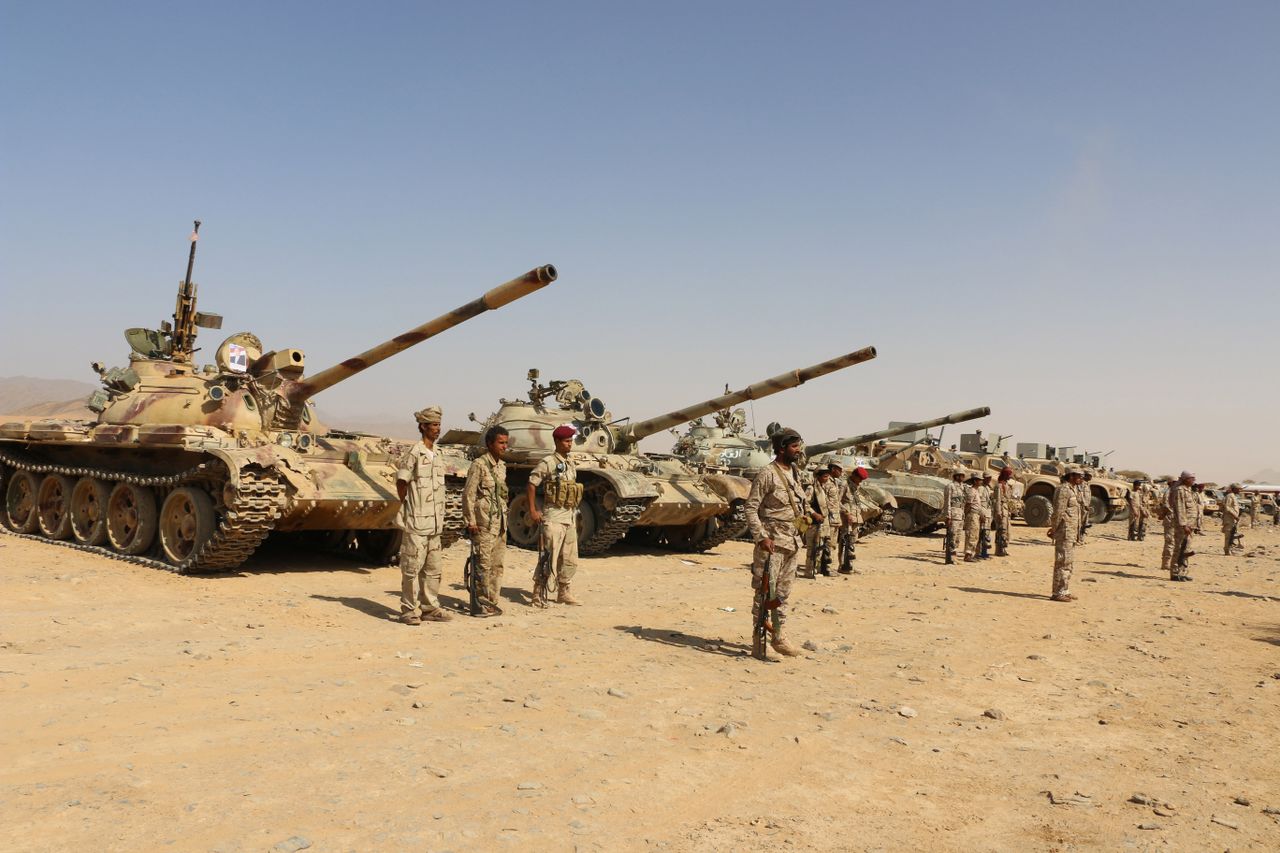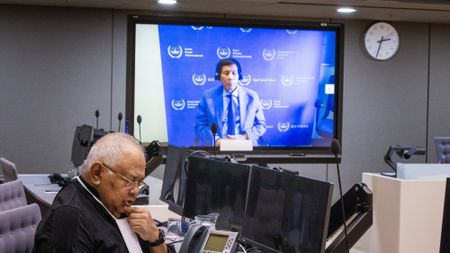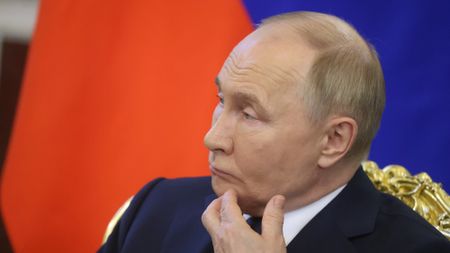Why is America backing Saudi Arabia's atrocious war in Yemen?
With friends like Saudi Arabia...


There is one Middle Eastern country that seems to get diplomatic cover from the United States whenever it does something wrong. It's a nation whose abuses of human rights and control of many holy sites inflamed Osama bin Laden's rage. It's a country whose actions incite Islamist extremism across the region. It's a country whose crimes go under-reported in American media, especially when those crimes implicate the U.S. or other Western powers.
That nation is Saudi Arabia, of course.
While conspiracy theorists and the new wave of anti-Semites tag Israel as the Middle Eastern nation most responsible for America's woes, it has been our other long-term ally in the region that causes the United States its most serious problems, and leads us to actions in which we disgrace ourselves.
Subscribe to The Week
Escape your echo chamber. Get the facts behind the news, plus analysis from multiple perspectives.

Sign up for The Week's Free Newsletters
From our morning news briefing to a weekly Good News Newsletter, get the best of The Week delivered directly to your inbox.
From our morning news briefing to a weekly Good News Newsletter, get the best of The Week delivered directly to your inbox.
Consider Saudi Arabia's unjust war with Yemen, which has become a grotesque humanitarian disaster. American involvement in this war has hardly been acknowledged by our political class, and is barely even known to the public. Understandably, perhaps, people want to look away from what is happening: With the help and connivance of the British and American governments, Saudi Arabia has been deliberately starving the country of Yemen, a nation unusually dependent on food imports.
The UN reported this week that nearly 14 million people, half of Yemen's population, are suffering a food "crisis" or "emergency." The next classification after emergency is "famine." The UN's efforts at relieving the hunger of Yemen reach just 3.5 million Yemeni people, and even this project is desperately underfunded. Beyond the starvation conditions, Saudi-led airstrikes have knocked over humanitarian relief resources in Yemen, and just this week killed another eight innocents in a single strike.
The U.S. is complicit in this. America has been providing intelligence, running drone missions, and has some special forces on the ground in Yemen, all while Saudi Arabia continues its war against the Shi'ite Houthis who seized Yemen's capital during a civil war.
But the Saudi problem extends far beyond just Yemen. Arguably, Saudi Arabia is partly to blame for all the conflicts of the Middle East in which the U.S. is participating, notably the fight against ISIS in Iraq, Syria, and Libya.
Saudi Arabia still funds, as official policy, radical and Wahhabist movements across the Islamic world, and beyond. The surge of Islamist sympathies, even in formerly pro-American areas like Kosovo, trace their inspiration and their funding back to the Arabian peninsula. These Saudi-funded mosques produce many of the fighters that go to join the jihad of the Islamic State. While ISIS is a threat to the House of Saud in Saudia Arabia itself, it also provides a useful proxy in a long-term rivalry with Iranian proxies throughout the Middle East.
Most thinking people in America moan about Saudi Arabia. After 9/11, many conservatives called for America to end the reign of the "terror masters," and included Riyadh on their lists. Liberals also detest the regime, as an enemy of human rights and a promoter of the most revanchist movements in the Islamic world. President Obama frequently complains about Saudi Arabia.
And yet, his administration cooperates with them in a war that has no discernible relation to U.S. interests. There's a kind of fatalism that settles over our friendship with Saudi Arabia. The U.S. consoles itself: At least Saudi Arabia helps keep oil prices low, which keeps the pressure on Russia. And at least we know the royal family; just think of what would replace the House of Saud if it ever fell.
But even if we are stuck working with Saudi Arabia to keep worse Islamists from controlling the Islamic holy land, and even if we are stuck with them as a balancing power to the Iranian regime, the American people deserve some answer about why we are helping them starve Yemen. Why is this mission valuable to the U.S.? Why are we participating, despite repeated warnings that it is a humanitarian disaster?
What kind of friendship requires something so transparently wicked?
Sign up for Today's Best Articles in your inbox
A free daily email with the biggest news stories of the day – and the best features from TheWeek.com
Michael Brendan Dougherty is senior correspondent at TheWeek.com. He is the founder and editor of The Slurve, a newsletter about baseball. His work has appeared in The New York Times Magazine, ESPN Magazine, Slate and The American Conservative.
-
 The battle over Jamaican rum
The battle over Jamaican rumUnder The Radar The spirit that defines the Caribbean is at the middle of a legal fight
By Rebekah Evans, The Week UK Published
-
 Do student loans affect a credit score?
Do student loans affect a credit score?the explainer Repaying loans on time will strengthen your credit — but paying late will hurt it
By Becca Stanek, The Week US Published
-
 Cherry blossom season: Washington diners’ happy time
Cherry blossom season: Washington diners’ happy timefeature The five best spots to enjoy the festivities
By The Week US Published
-
 The arrest of the Philippines' former president leaves the country's drug war in disarray
The arrest of the Philippines' former president leaves the country's drug war in disarrayIn the Spotlight Rodrigo Duterte was arrested by the ICC earlier this month
By Justin Klawans, The Week US Published
-
 Ukrainian election: who could replace Zelenskyy?
Ukrainian election: who could replace Zelenskyy?The Explainer Donald Trump's 'dictator' jibe raises pressure on Ukraine to the polls while the country is under martial law
By Sorcha Bradley, The Week UK Published
-
 Why Serbian protesters set off smoke bombs in parliament
Why Serbian protesters set off smoke bombs in parliamentTHE EXPLAINER Ongoing anti-corruption protests erupted into full view this week as Serbian protesters threw the country's legislature into chaos
By Rafi Schwartz, The Week US Published
-
 Who is the Hat Man? 'Shadow people' and sleep paralysis
Who is the Hat Man? 'Shadow people' and sleep paralysisIn Depth 'Sleep demons' have plagued our dreams throughout the centuries, but the explanation could be medical
By The Week Staff Published
-
 Why Assad fell so fast
Why Assad fell so fastThe Explainer The newly liberated Syria is in an incredibly precarious position, but it's too soon to succumb to defeatist gloom
By The Week UK Published
-
 Romania's election rerun
Romania's election rerunThe Explainer Shock result of presidential election has been annulled following allegations of Russian interference
By Sorcha Bradley, The Week UK Published
-
 Russia's shadow war in Europe
Russia's shadow war in EuropeTalking Point Steering clear of open conflict, Moscow is slowly ratcheting up the pressure on Nato rivals to see what it can get away with.
By The Week UK Published
-
 Cutting cables: the war being waged under the sea
Cutting cables: the war being waged under the seaIn the Spotlight Two undersea cables were cut in the Baltic sea, sparking concern for the global network
By The Week UK Published
